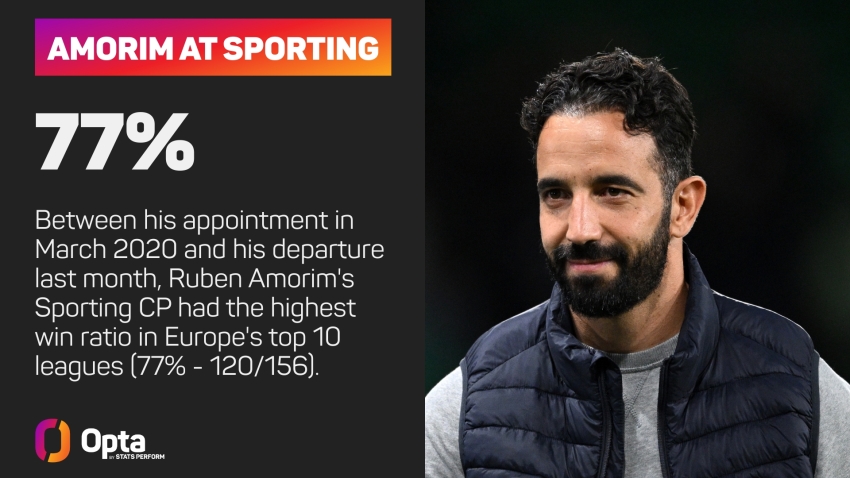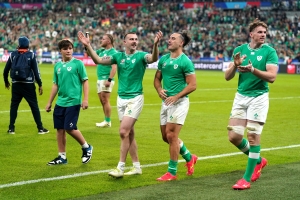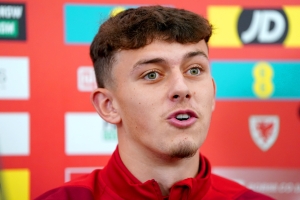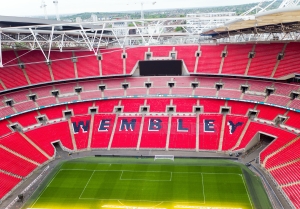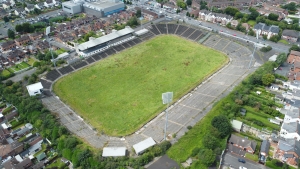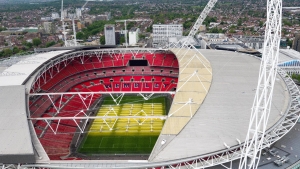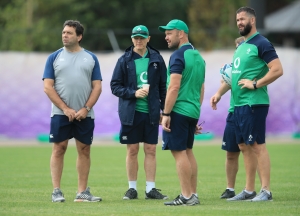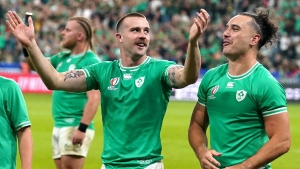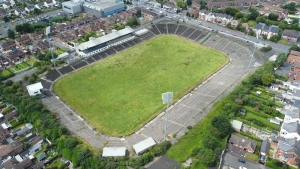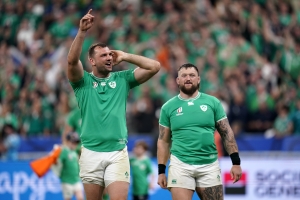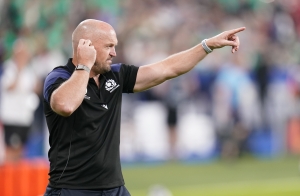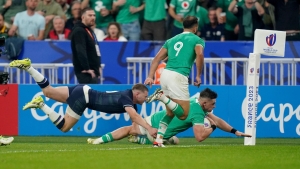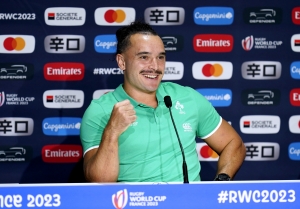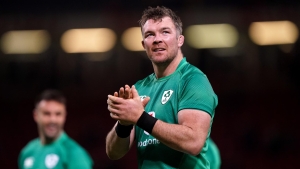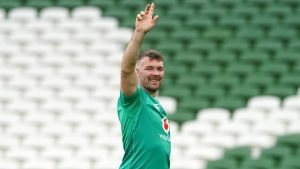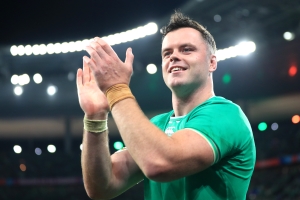Manager Rob Page says Wales should not move home games to the Principality Stadium ahead of Euro 2028.
The UK and Ireland’s bid to host Euro 2028 was formally approved on Tuesday, with the 74,500-capacity home of Welsh rugby in Cardiff among the 10 venues to be used for the tournament.
The idea of playing at the Principality Stadium – Wales have played there only once since 2011, a 4-1 friendly defeat to Spain in October 2018 – angers a large section of the Dragons’ fan base, who prefer that games are played at the 33,280-capacity Cardiff City Stadium.
But Noel Mooney, chief executive of the Football Association of Wales, last month raised the possibility of the men’s national team playing there before Euro 2028 to allow players and supporters to get used to the venue should they qualify for the tournament.
“Do I want it? No,” Page said of that suggestion ahead of Wales’ friendly with Gibraltar on Wednesday, which will be only the second time that the Dragons have played at Wrexham’s Racecourse Ground since 2008.
“The atmosphere and what we have created at Cardiff City Stadium is incredible.
“I’ve been quite vocal about it in the last couple of weeks because, although we have a game in Wrexham, what we have created in Cardiff is incredible and has definitely played a part in helping us with our success in the last two years.
“Promotion from B to A in the Nations League, qualification for the Euros and then the World Cup, our supporters in that stadium played a massive part.”
All five countries – England, Scotland, Northern Ireland, Wales and the Republic of Ireland – are expected to go through qualification for Euro 2028, with UEFA understood to be reserving two host nation places for any of the teams which do not make it on merit.
While the final and possibly both semi-finals could be at Wembley, the FAW is hoping to stage the opening match of the tournament and maybe as many as six games at the Principality Stadium.
“It’s a grey area. I don’t think it’s going to be an automatic qualification for us,” Page said.
“It’s massive for us as a country, nation, Cardiff as a capital. It’s a great achievement (to host Euro 2028).
“Everyone should be proud of bringing the tournament to the city.”
Page is expected to hand senior debuts to Charlie Savage, Luke Harris and Owen Beck in front of a sell-out 10,000 crowd against Gibraltar.
The trio will then join up with their Wales Under-21 team-mates for Friday’s European Championship qualifier in the Czech Republic.
Beck, the great-nephew of Liverpool and Wales striker Ian Rush, says he regularly receives advice from his famous relative.
“When I got called up it was a dream come true, a surreal moment,” said Beck, the Liverpool full-back currently on loan at Scottish Premiership side Dundee.
“All my family are coming. I’ve spoken to him (Rush) and if he gives me any advice, it’s from the best and really valuable to me.
“I’m sure he’ll be here watching. He’s someone I look up to, to have a career like that at club and international level. He’s a great inspiration.”
Savage, the son of former Wales midfielder Robbie, told the FAW website: “Growing up, if someone told me at the age of 20 that I’d be called up by my country, I’d have bitten your hand off. I’ve got to enjoy it whether I play or not.
“I’m looking forward to Wednesday. My nan’s coming, she lives about a mile away from The Racecourse. To have all my family there from Wrexham, it will be an amazing night.”
Gibraltar are 198th on the FIFA rankings table with only nine teams below them.
Julio Cesar Ribas’ side are using the game as preparation for their Euro 2024 qualifier against Republic of Ireland on Monday.











